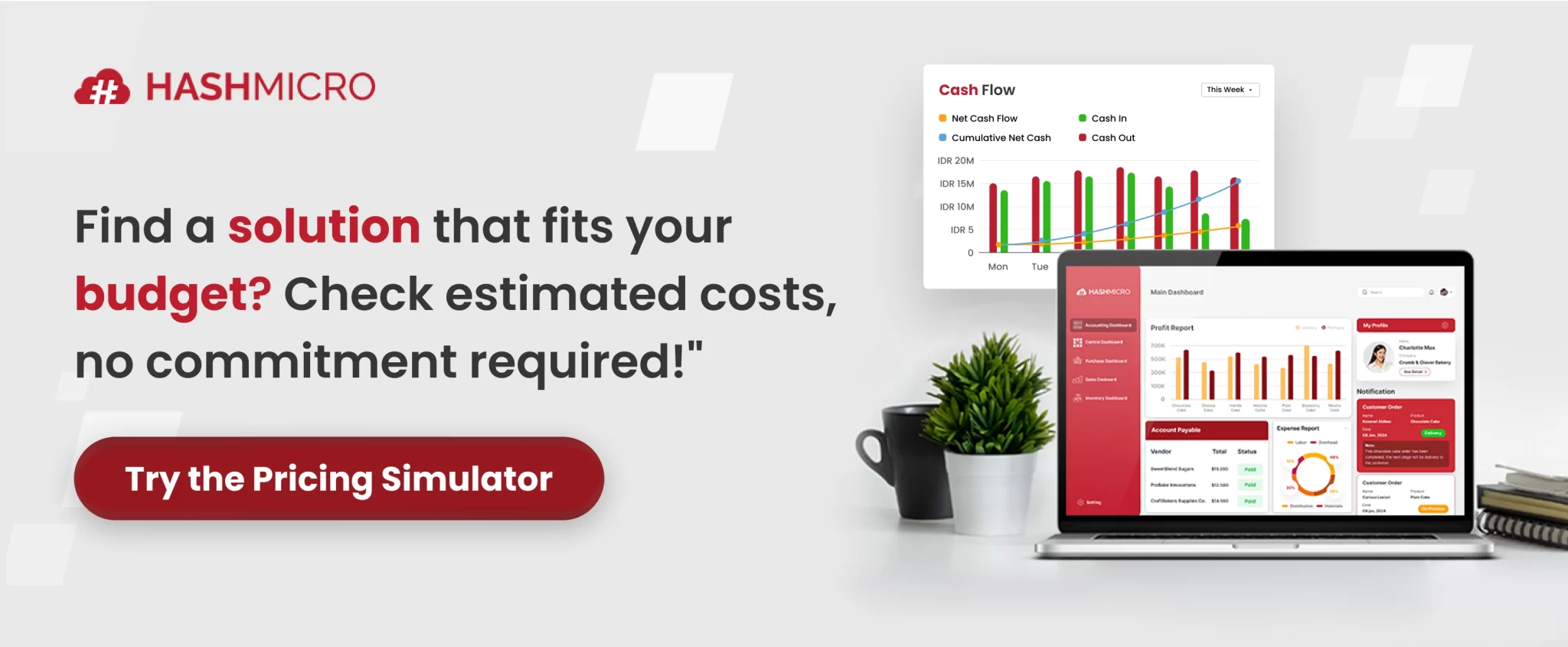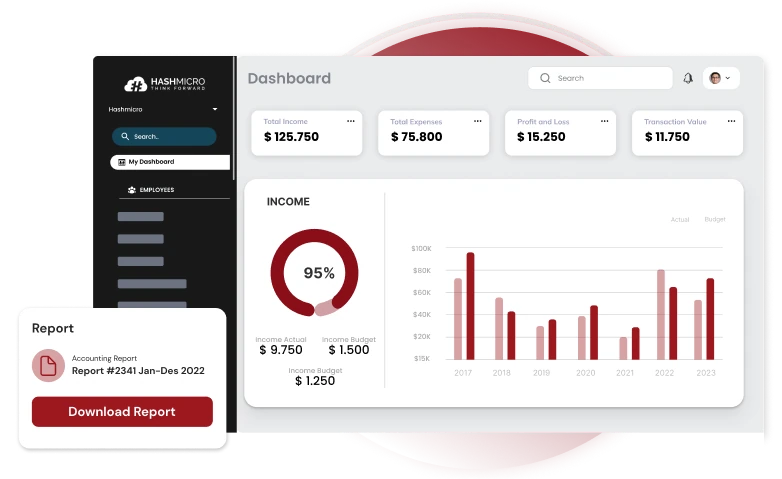Cash flow problems are a top reason startups fail, with 60% facing issues in their first year, according to PYMNTS. From my experience, many mistakes in tracking expenses and cash flow come from not using the right tools.
HashMicro Accounting Software solves this with automation, real-time reporting, and seamless integration. Ready to take control of your finances? Try our free demo today!
Key Takeaways
|
Shortlisted Best Accounting Software
Before we move on to the list of recommendations, here are some of the most prominent choices for businesses based on features, relevance, and user experience.
Best Because
The best end-to-end solution for all types of business needs
Best Because
Help company accounting become more organized and improve performance in billing and expenses
Best Because
Accounting system with or without a monthly basis, and it's easy to navigate
Best Because
Very intuitive and makes things faster for doing payroll and checks
Best Because
Allows user to visualize the financial impact of every operational decision in real time
Best Because
Flexibility to configure for the specific workflows and business processes of a company
Best Because
Effortlessly simplifies complex accounting tasks
Of course, the recommendations don’t stop there; plenty more accounting software exists. To help you choose, I’ve evaluated the seven best accounting software in Singapore for 2026.
What is Accounting for a Startup?
Accounting for startups involves recording and managing all financial transactions related to a new business. It helps entrepreneurs track income, expenses, and overall economic health to make informed decisions.
Proper accounting allows startups to monitor cash flow, prepare accurate financial statements, and comply with tax regulations. Maintaining organized financial records is crucial for early-stage businesses to attract investors, manage budgets, and plan for growth.
Top 7 Accounting Software for Startups
Here are 7 of the best accounting software for startups in 2026, selected for their strong features, easy integration, competitive pricing, and reliable support.
1. HashMicro Accounting Software
HashMicro presents its best accounting software solution, tailored specifically for startups. This software offers a wide range of extraordinary features. Accounting Software from HashMicro is designed to revolutionize financial management for startups.
As one of the best accounting software in Singapore, it offers robust features like cash flow management, journal entries, and reconciliation to help startups manage finances effectively. Please request a free demo to see how it simplifies your accounting process.
Key features:
- Hashy AI Finance: An AI-powered financial management feature that automates bookkeeping, accelerates reconciliation, and delivers real-time insights to support smarter financial decisions.
- Budget Management: Simplifies expense control and both fixed and dynamic budgeting, enhances financial transparency, and supports better decision-making.
- Invoice Management: Automates the creation, delivery, and tracking of invoices to ensure timely payments and improve cash flow.
- Bank Integration & Auto Reconciliation: Enables automatic synchronization and reconciliation between the bank and the software, including e-banking output support to reduce errors and save time.
- 3-Way Matching: Automates the matching of purchase orders, invoices, and goods receipts to prevent fraud and ensure transaction integrity.
- Financial Ratio: Provides financial ratios for performance analysis, aiding in more accurate decision-making and opportunity identification.
- Multi-Level Analytical Report: Delivers in-depth financial reports that support data analysis, strategic decision-making, and stronger financial control.
| Pros | Cons |
|
|
HashMicro: Ideal for startups that need more innovative cash flow management, automated bookkeeping, and clear financial insights.
“HashMicro Accounting Software offers startups a powerful blend of automation, accuracy, and real-time financial visibility. Its AI-driven features and strong integration capabilities make it an excellent choice for young companies aiming for scalable and efficient financial operations.”
— Angela Tan, Regional Manager
2. FreshBooks
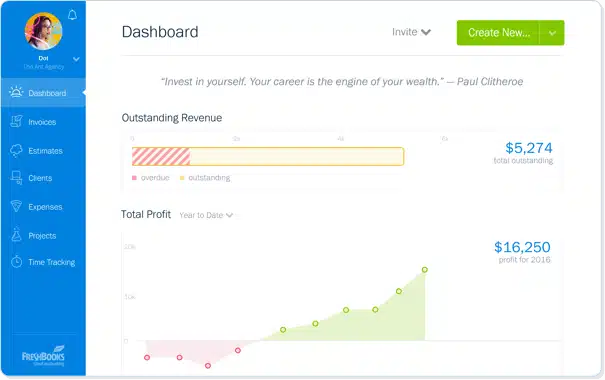
FreshBooks is considered one of the best accounting software for service-based startups that intend to stay small. This software offers a range of features designed to streamline invoicing and expense tracking.
Key features:
- Simple invoicing: Creates and sends professional bills fast
- Expense tracking: Categorizes receipts automatically
- Payment reminders: Chases late payments via automation
- Client portals: Allows approvals and document sharing
- Basic reports: Shows income/expenses in dashboards
| Pros | Cons |
|
|
FreshBooks: Great choice for small, service-based startups that want simple yet reliable tools for invoicing and expense management.
3. Waves
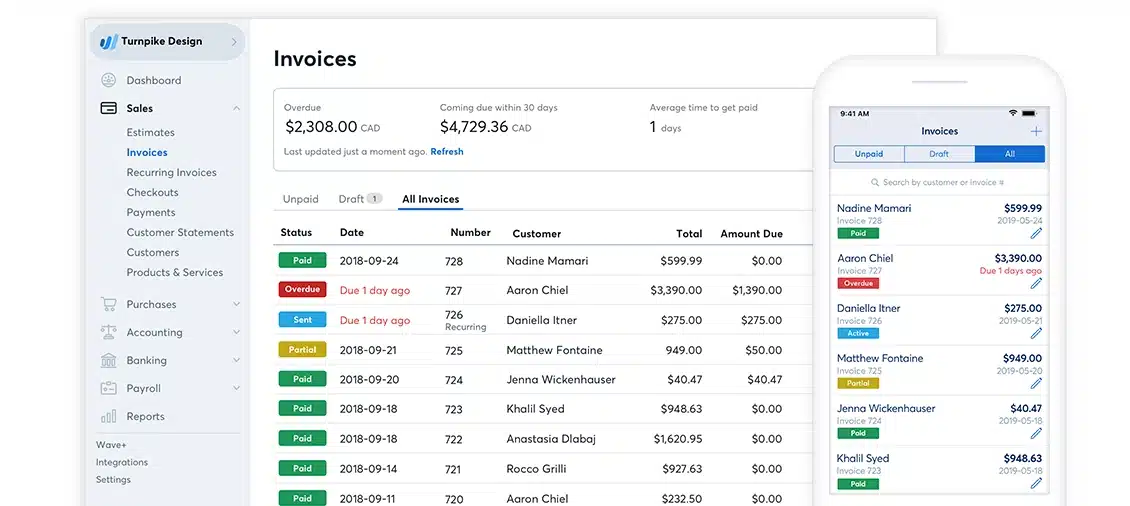
Wave is an accounting software option that offers invoicing and accounting services, making it an attractive choice for startups with low invoicing needs. This software also provides additional services, including payroll, bookkeeping, and accounting, which incur an extra cost.
Key features:
- Free invoicing: Unlimited bills and estimates
- Receipt scanning: Captures expenses via mobile
- Bank connections: Links accounts for auto-categorization
- Basic accounting: Tracks income/expenses simply
- Tax reports: Generates simple GST summaries
| Pros | Cons |
|
|
Waves: Best suited for early-stage startups with light invoicing needs, offering free core accounting tools with the flexibility to add payroll and bookkeeping as they grow.
4. QuickBooks Online

QuickBooks Online is an accounting software designed for freelance bookkeepers, small businesses, and startups. It offers various essential bookkeeping and accounting tools at affordable prices, including invoice and bill management, payment tracking, and automatic tax calculations.
Key features:
- Bill management: Handles invoices and payments
- Auto tax calculations: Computes GST accurately
- Payroll processing: Runs employee payments
- Expense tracking: Logs and categorizes spending
- Bank reconciliation: Matches transactions daily
| Pros | Cons |
|
|
QuickBooks: A reliable option for startups and small businesses that need affordable yet comprehensive bookkeeping, invoicing, and tax management tools.
5. Xero
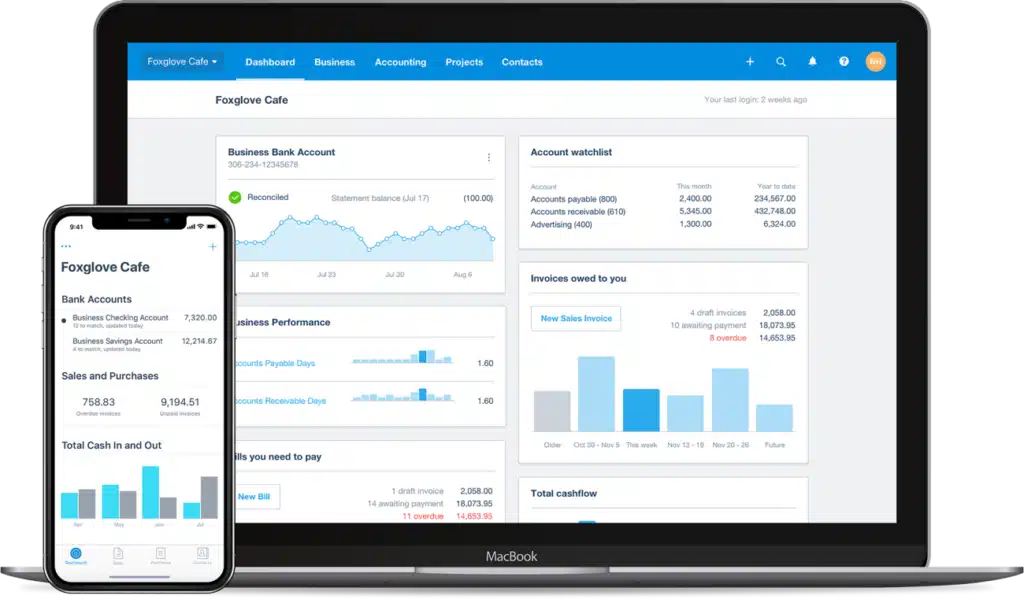
Xero is an accounting software designed for startups, offering easy-to-use features to manage various financial processes. It provides invoicing, payroll, expense claims, bank reconciliation, and more.
Key features:
- Real-time bank feeds: Imports transactions instantly
- Invoicing/payments: Sends and tracks bills online
- Payroll management: Handles Singapore compliance
- Expense claims: Approves staff reimbursements
- Project tracking: Monitors profitability per job
| Pros | Cons |
|
|
Xero: ideal for startups looking for user-friendly accounting software with strong invoicing, payroll, and bank reconciliation features.
6. Oracle NetSuite
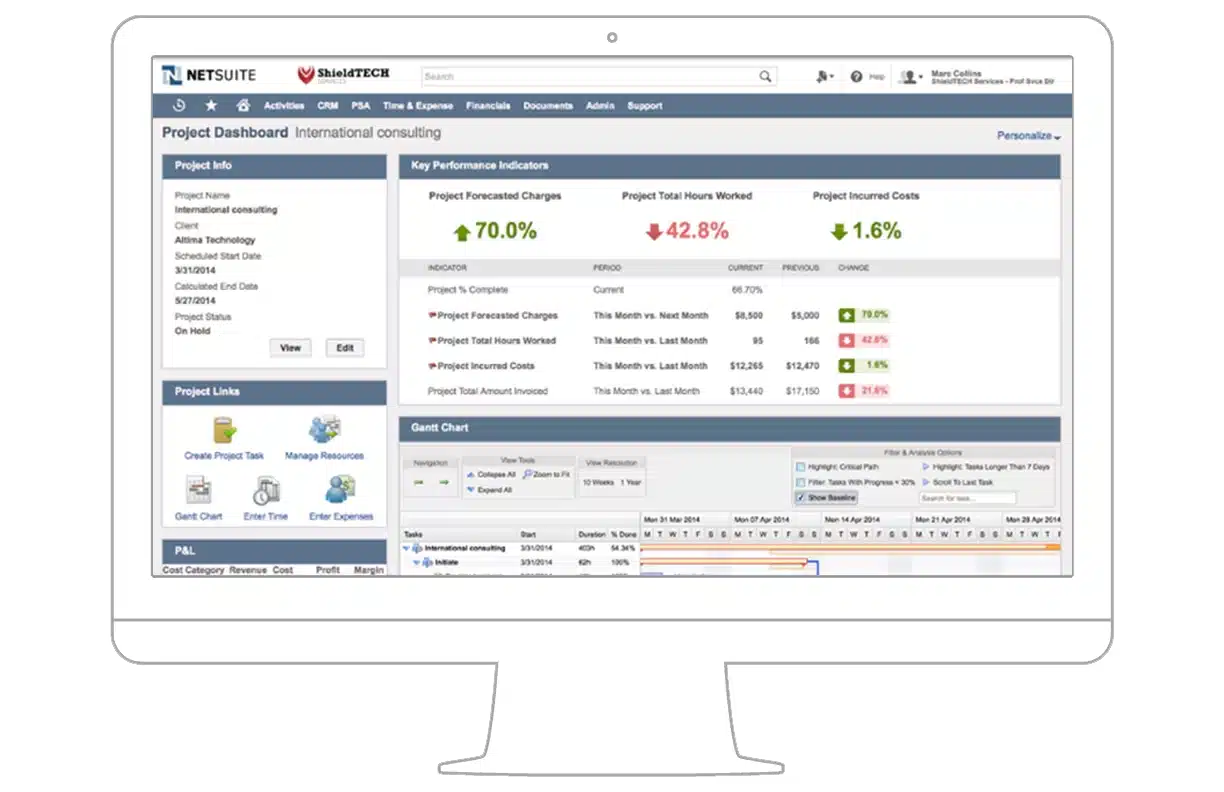
Oracle NetSuite is one of the best accounting software designed for startups seeking ERP functionality. It offers features such as inventory management, supply chain, and order management processes.
Key features:
- ERP integration: Links accounting to operations
- Inventory tracking: Manages stock levels
- Order processing: Automates sales workflows
- Supply chain tools: Tracks vendors/purchases
- Advanced reports: Custom financial analytics
| Pros | Cons |
|
|
Oracle NetSuite: Best for growing startups that require advanced ERP capabilities, combining accounting with inventory, supply chain, and order management.
7. Zoho Books
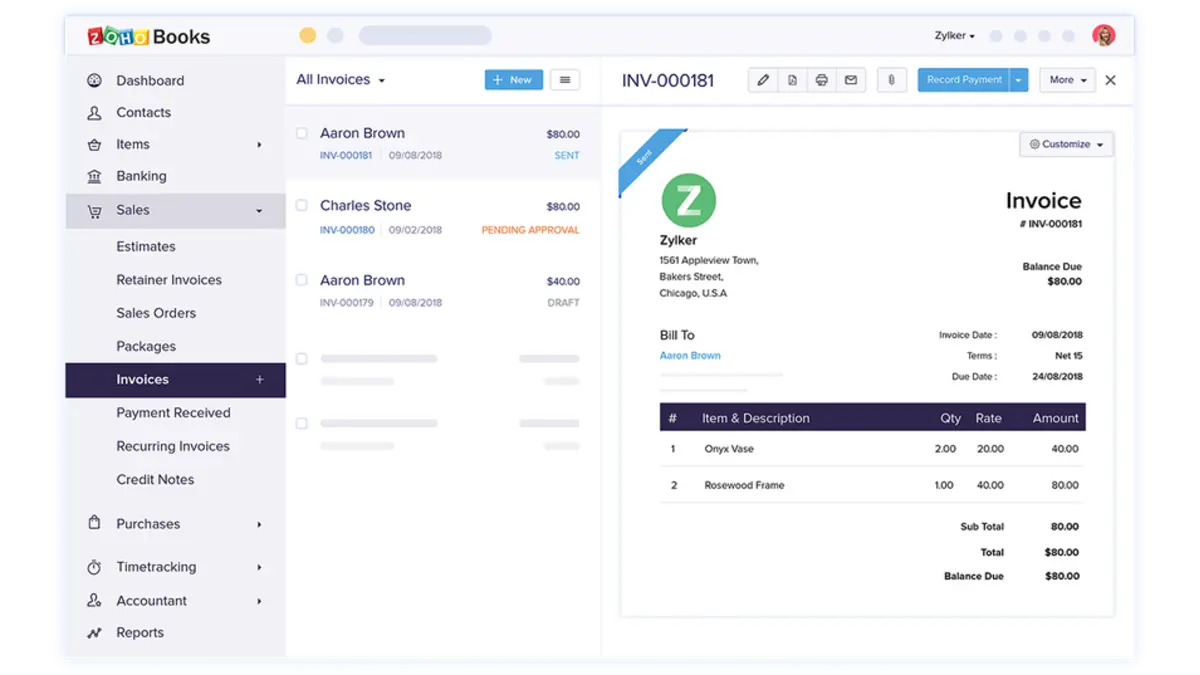
Zoho Books bookkeeping platform is part of the Zoho Suite. This accounting software for startups offers features such as invoice customization, tax management, recurring invoices, and credit notes.
Key features:
- Custom invoices: Brands and automates billing
- Tax compliance: Handles GST and multi-currency
- Recurring billing: Sets up subscriptions
- Client portals: Shares docs securely
- Zoho integration: Connects to CRM/apps
| Pros | Cons |
|
|
Zoho Books: An excellent fit for startups wanting customizable invoicing, simple tax management, and smooth integration within the Zoho ecosystem.
Read more: 10 Best Infotech Accounting Software in Singapore 2025
Why is Accounting for a Startup Business Important?
Accounting helps startups build a solid financial foundation by accurately recording all income, expenses, and investments. This lets business owners clearly understand their financial position and avoid costly mistakes.
It also helps track performance, create budgets, and prepare financial forecasts. Accurate records are crucial when approaching investors or lenders, as they show the company’s financial Reliability.
Proper accounting ensures tax compliance and minimizes the risk of penalties. Beyond balancing books, it provides insights that guide better decisions and support long-term growth.
Accounting Basics Every Startup Should Track
Every startup must monitor essential accounting basics to maintain financial health and ensure smooth operations. This includes tracking income, expenses, cash flow, and assets while applying controls such as the 3-way matching concept to ensure accuracy and prevent discrepancies.
- Income and Revenue: Tracking all money entering the business is crucial to understanding profitability and growth potential. Recording sales, investments, or any other sources of revenue helps in accurate financial reporting.
- Expenses: Startups must carefully monitor all outgoing payments such as rent, salaries, supplies, and utilities. Keeping detailed expense records prevents overspending and supports budgeting.
- Cash Flow: Monitoring the timing of cash inflows and outflows ensures the business can meet its financial obligations without interruptions. Positive cash flow is vital for day-to-day operations and long-term sustainability.
- Assets and Liabilities: Keeping an updated list of assets (like equipment and inventory) and liabilities (such as loans or debts) helps startups understand their net worth and financial position.
By consistently tracking these accounting basics, startups can make informed decisions, plan effectively, and avoid common financial pitfalls that hinder growth.
Steps to Begin Accounting for Your New Business
Accounting for a new business is critical to maintaining clear financial records and supporting sustainable growth. Here are the key steps:
1. Choose an accounting method
Decide between cash-basis and accrual-basis accounting. Cash-basis accounting records income and expenses when money changes hands, making it easier for small startups. Accrual accounting records transactions when they are earned or incurred.
2. Open a separate business bank account
Separating personal and business funds ensures clean, organized records. It simplifies bookkeeping, makes cash flow tracking easier, and avoids confusion during audits or tax season.
3. Set up a bookkeeping system
Establish a reliable way to record transactions. While spreadsheets may work for minimal operations, accounting software offers automation, fewer errors, and instant reporting.
4. Track invoices, receipts, and expenses
Keep all invoices and receipts organized and update expense records regularly. This helps with accurate budgeting, tax deductions, and financial forecasting.
5. Understand your tax obligations
Research your local tax requirements, including income tax, VAT, or payroll taxes. Preparing early and setting aside funds helps avoid missed deadlines or penalties.
6. Consult an accountant or advisor
Even if you handle basic bookkeeping, a professional can review your setup, prepare financial statements, and provide strategic advice for managing business finances.
Conclusions
Startup accounting is more than just tracking numbers; it’s the foundation for making informed decisions, maintaining cash flow, and ensuring long-term success. By understanding the basics and using the right tools, startups can avoid common financial pitfalls.
HashMicro Accounting Software offers a complete solution with automation, real-time reporting, and essential features tailored to startup needs to support that journey. It simplifies financial tasks, improves accuracy, and helps founders focus on growing their business.
Request a free demo today to see how the right accounting system can simplify your startup’s finances and help you confidently scale.
FAQ About Accounting Software for Startups
-
Do startups need a bookkeeper?
Startup founders need a dependable bookkeeping system to record all financial transactions and produce accurate reports like balance sheets and income statements. This article outlines the key responsibilities of startup bookkeeping and how it complements the work of an accountant.
-
Do I need an accountant for my startup?
An accountant can provide significant advantages for startups. Although founders may manage simple accounting tasks early on, professional accountants offer greater expertise and efficiency—particularly as the business expands. Below are several reasons why startups can benefit from their support.
-
What is the difference between a bookkeeper and an accountant?
Bookkeeping is a transactional and administrative function focused on daily financial record-keeping, such as logging purchases, receipts, sales, and payments. In contrast, accounting interprets that data to generate reports and provide financial insights that help business owners make informed decisions.


